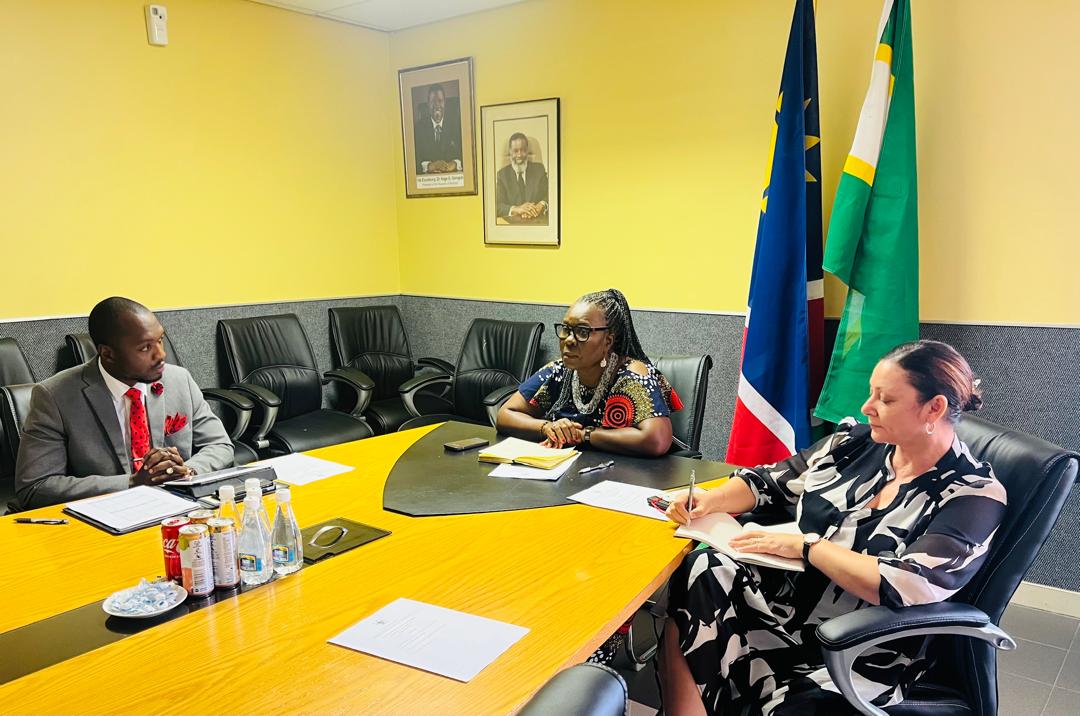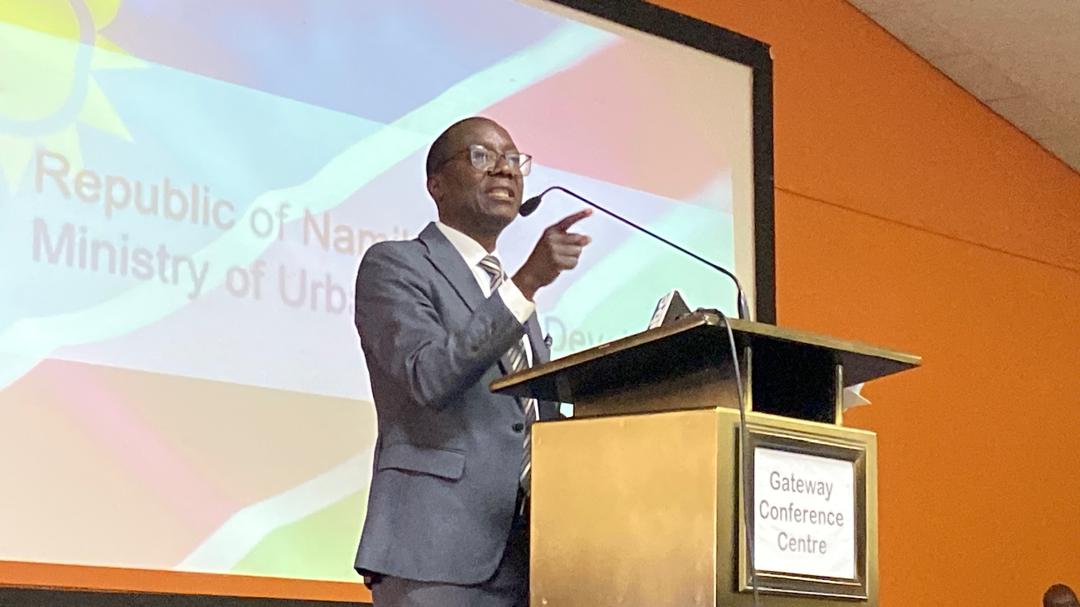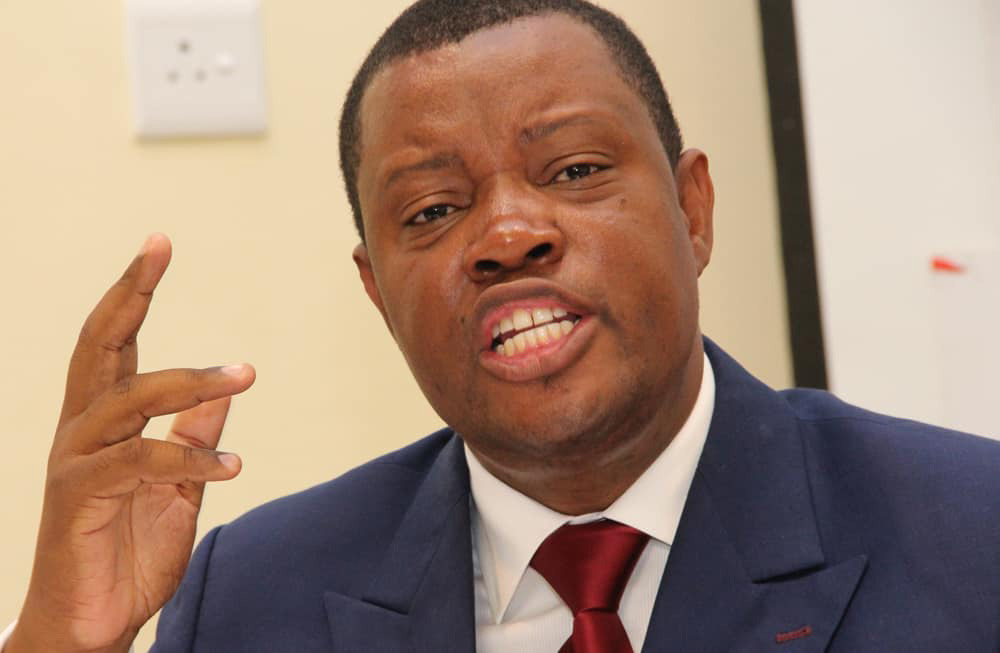IN one of the few political debates to have taken place in the run-up to elections next week, 11 of Namibia’s 13 political parties on Monday discussed poverty and inequality.
Herbert Jauch of the Labour Resource and Research Institute (LaRRI) – which organised the event and also launched the book ‘A Rich Country with Poor People: Inequality in Namibia’- set the scene for the lively debate, pointing out that Namibia is ranked amongst those with the most unequal society in the world.He said that poverty and inequality, with their roots in the German colonial era and the apartheid regime, remained pervasive even today, with inequalities persisting along gender, race, regional, ethnic, educational and class dimensions.Jauch also noted that in the formal sector, a large number of workers earn a monthly salary of N$300 to N$500 a month, while their managers take home between N$25 000 and N$35 000 a month. Further, the unemployment rate stands at between 37 and 43 per cent, with youth unemployment at a staggering 60 per cent. And, depending on which measure one uses, research data shows that between 28 and 82 per cent of the Namibian population is poor. While attempts have been made to address the issue, poverty remains rampant, Jauch said.With the scene set, the 11 parties present – APP, CoD, CP, DTA, MAG, NDMC, RDP, RP, Swanu, Swapo and the UDF – debated poverty, proposing solutions from educational reform to social discipline, and from local production to studying politics.Here’s a run-down of what the party representatives had to say on the issue:All People’s Party (APP) representative, Lena Nakatana, proposed what her party calls the Basic Poor Household Income Grant, which she said would specifically target poor households (as opposed to a universal grant). She also said there was a need to tackle ‘irregularities such as reserving jobs for struggle kids, the Chinese bursaries, etc’, accusing the Government of having failed.The Congress of Democrats (CoD) focused on the need to localise production as a means of creating employment and national wealth, with representative Natjirikasorua Tjirera stating ‘I see no reason why 50 per cent of our diamond wealth should be shared with Nicky Oppenheimer (Chairman of DeBeers mining company) and others.’ Tjirera called for ‘fair and effective redistribution of land’, and the overhauling of the BEE concept – which he said had only succeeded in creating an elitist group – in order to effectively address poverty at the grassroots.THE PEOPLECommunist Party representative, Attie Beukes, who said that ‘the people know best’, stated, emphasised, and re-emphasised the need to study politics as a recourse to addressing poverty. He also said the country needed to unite to ’emancipate and regain our natural resources, adding that ‘Swapo does not need opposition, it needs help!’DTA Secretary General, McHenry Venaani, said education was the key to addressing inequality. ‘We need to create an educational system that creates jobs’, he said, adding apprenticeship programmes and vocational training as part of this construct. He also highlighted the need to ‘unlock dead capital’ in rural areas where, for example, people are not able to use communal land as collateral to secure financing. Venaani further called for agricultural reform to ensure Namibia’s food security; and stressed the need for resource redistribution, particularly in correcting the imbalance between blacks and whites.Monitor Action Group (MAG) President, Jurie Viljoen, agreed with Venaani on the point of education. On the land issue, however, he stated that ‘productivity is key’, and that unproductive land should be given to farmers who are able to use it most productively. He also said that tender allocations, whether given to local or foreign entities, had to ensure the appointment of Namibian citizens as workers, as a means to addressing unemployment.Joseph Kauandenge of the Namibia Democratic Movement for Change (NDMC) stressed the importance of effective leadership, saying ‘we can have all the nice policies on the table, but if we are lacking in leadership, they won’t work.’ In addition to stating the need ‘to look at the entire education setup’ as a means to addressing unemployment, Kauandenge also questioned the use of soft loans extended to Namibia, saying ‘who do they really benefit at the end of the day?’PRIORITIESThe Rally for Democracy and Progress’ (RDP’s) President, Hidipo Hamutenya, argued that in order to effectively address poverty, there was a need to set national priorities straight. He said that Government ‘agrees on things like Vision 2030, but then flies off to build an office for the Founding President for N$40 million. How does this define our priorities?’ He said that priority areas – citing education and employment creation as examples – needed to be invested into and addressed before other secondary matters were considered. Hamutenya also emphasised the need to tackle corruption, saying that the ‘rampant and ballooning corruption’ in the country was indicative of a lack of social discipline.Gert Jansen of the Republican Party (RP) said that his party’s response to dealing with poverty would be to ‘immediately abolish the Ministry of Veterans Affairs and replace it with a Ministry of Employment Creation and Poverty Reduction.’ He said there was a need to create sustainable labour production programmes; establish local, regional and international markets where Namibian goods can be sold; give local companies tender preference; revise by-laws so SMEs can flourish; to have local authorities subsidise basic services for the unemployed, poor and pensioners to cope, and to set ‘an embargo on Chinese and internationals taking the work of Namibians.’ Jansen also proposed a national housing development programme.Swanu representative, Rihupisa Kandando, said there was a need to return to the drawing board in order to arrest the poverty problems facing the country. He said that socialism would be ‘the antidote to the present situation’, adding that a free-market economy had proved ineffective. ‘Namibia belongs to all of us, and we therefore need to restructure and balance society as defined in the Constitution,’ he said.Swapo’s Elijah Ngurare pointed to the need for a focus on rural development, stating that 70 per cent of the country’s population is rural, and that ‘Members of Parliament are forgetting who put them there’.He also said that youth empowerment was critical, stating ‘the youth are a time bomb that we can’t afford to ignore’. Ngurare further called for accountable leadership with regards to the awarding of tenders, the implementation of policies drawn up, and the completion of the BEE framework. ‘Theories are good and well, but they won’t put bread on the table,’ he said, adding that non-performing MPs should be recalled. The UDF’s Werner Claassen questioned how Namibia had reached a point of such glaring inequality in the first place, saying those in authority were not addressing the real issues. He pointed to the stark contrast between places like the Ombili informal settlement and Ludwigsdorf, for example, or ‘left-behind’ towns like Karibib and Gibeon, saying that these inequalities were unacceptable. Claassen proposed reform in education, the creation of industry, enterprise and entrepreneurial development, and the effective use of funds, as key to addressing poverty. He added that Namibia was faced with ‘a myriad of problems requiring a myriad of solutions’, but closing the debate, categorically stated that ‘there is enough to go around’.nangula@namibian.com.na
Stay informed with The Namibian – your source for credible journalism. Get in-depth reporting and opinions for
only N$85 a month. Invest in journalism, invest in democracy –
Subscribe Now!









